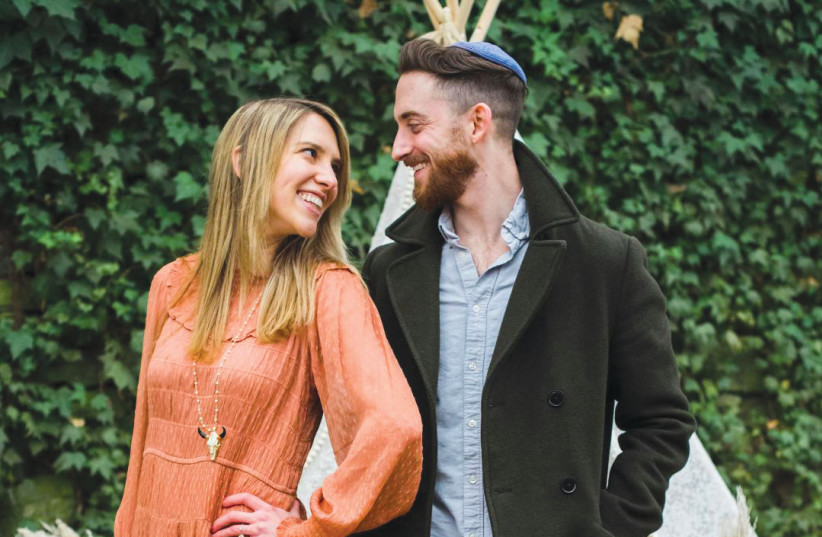How do Jewish couples meet and marry? This is a question I’ve researched for over two decades. I’ve interviewed more than 175 couples and related some of their stories in Part I of my series for The Jerusalem Post, published for Tu B’Av 2021, under the heading: “Where did they meet?”
The focus was on couples who met in recent years without others being involved – no friends; no relatives; no matchmakers; and no Internet. They were simply going about their business – working and volunteering, traveling on planes and buses, skiing and hiking in Israel and Nepal, in synagogues and at universities. In other words, love is everywhere.
Today’s article, Part II of the series, addresses the question: How did they meet? It focuses on 11 couples, engaged or married, who met through an intermediary – a friend, classmate, family member, rabbi, matchmaking app or a Facebook group.
Michael J. Rosenfeld, of Stanford University, and Reuben J. Thomas, from the University of New Mexico, authored two research papers on the way that heterosexual Americans meet: in 2010, “Meeting Online: The Rise of the Internet as a Social Intermediary,” and in 2019, “Disintermediating your friends: How Online Dating in the United States displaces other ways of meeting.”
They note the following: “Before World War II, mate selection was dominated by family, and by the pool of potential mates available in the neighborhood, the church and the primary or secondary school.

“In 2009, meeting through friends was by far the most common way (this group) met. Since 2009, however, meeting through friends has declined sharply… and the couples now are much more likely to meet online than to meet any other way.
“People used to make up stories about how they met, so they wouldn’t have to admit that they met online, but now many people embrace it.”
The introduction of smartphones around 2007 brought “the dating app off the user’s desktop and into their pocket, making dating accessible everywhere and at all times.”
In 2009, about 22% of the couples met online and by 2017, that number had risen to about 39%.
DO THESE statistics represent the Jewish world? Probably, to some extent, though research is lacking to confirm this. Clearly the number of Jewish-based apps has increased since the founding of JDate in 1997.
The Orthodox establishment is joining the wave, including the OU (Union of Orthodox Organizations) and Chabad (https://www.chabadmatch.com/). The scope of the apps has also widened. On the JDate profile today, a member’s options include Conservadox, Conservative, Hassidic, Orthodox (Modern, Ba’al Teshuva and Frum), Reconstructionist, Reform and “Culturally Jewish.”
Many still promote the idea of “friends setting up friends.” In 2018 at www.marthastewart.com, the writer concludes: “Long before… online dating, the best way for singles to meet was by means of introduction through close friends and family.
“While dating apps and online dating have streamlined this process quite a bit, it can be complicated. That’s why dating and relationship experts agree that the tried-and-true way of meeting potential suitors through folks who know you is still one of the best ways to find a partner.”
Shmuely Boteach, a prominent relationship expert, writing in The Jerusalem Post in May 2020, advocates the move “to deputize all the earth’s inhabitants to become matchmakers.”
Dr. Leah Hakimian is a chronicler of Jewish love and matrimony who researches the question: how Jewish couples meet and marry.
